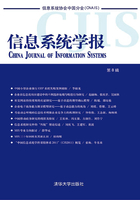
4 结论
虽然文献中有相当数量的研究讨论了推行和实施ERP系统的方方面面,然而具体分析失败案例的文章却是少之又少。特别是关于中国小型企业推行ERP的研究,在学术界还远远没有得到应有的重视。面对其风起云涌之发展势头,以及ERP项目长期居高不下的失败率,业界对这类研究其实有着强大的实际需求。此外,由于鲜有公司愿意公开其失败的细节,研究人员一般也难有机会能够深入分析ERP项目失败的真正原因。因此,本文在这一领域内的努力就显得更为宝贵。通过对目标公司的实际观察,我们希望能够对计划尝试ERP系统的中国小型企业提出如下几点具体经验和教训:
其一,国内小型企业必须认识到自身在企业文化和组织架构上的先天条件。本文所提出的九项关键成功因素,可以作为准备尝试ERP企业进行可行性评估的起点。虽然有研究人员认为中国大中型公司在推行和实施ERP过程中与西方企业面临类似的挑战[16],但是本文的观察发现,中国的小型企业必须面对为数众多的额外困难。诸如与ERP哲学相悖的管理理念,有限的企业资源及项目预算,雇员参差不齐的业务水平,以及严峻的外部环境,等等。基于目前中国小型企业的实际情况,要想成功推行ERP,并真正得益于ERP管理理念,可能仍然有一段漫长的路要走。如果条件尚不具备就贸然上马ERP,可能并不是一个明智的抉择。
其二,国内的小型企业必须要实实在在明确推行ERP系统的真正意图。ERP并不是一个能够解决企业所有问题的灵丹妙药。现实情况是,某些企业的高层管理人员并没有切实了解ERP系统作为管理哲学的本质,然后就盲目崇拜外来的高科技解决方案。也有一些高管不愿意经历ERP对企业业务流程可能带来的根本性变革,或者没有真正寄希望于ERP来提高企业的盈利水平,而仅仅是跟风业界,把ERP系统作为对外宣传的工具。这样的企业可能并不适合在目前就推行ERP。它们或许可以先尝试诸如会计系统电算化、客户管理自动化之类规模小一些的业务流程重组项目,为今后推行ERP积累宝贵的管理经验和操作经验。
其三,对于那些真正有兴趣推行ERP系统的中国小型企业,它们应当充分估计到推行ERP对当前日常工作的冲击,并且做好调整管理理念和组织结构的各项准备。推行ERP系统是一个自上而下的重大企业项目。高层管理者必须给予真正的支持,并且切实致力于在全公司范围内强调和推广ERP项目的重要性。全体员工都必须认识到,推行ERP不是简单安装一个计算机系统的科技革新项目,而是意味着要引入一套全新的企业管理哲学。这意味着现有的组织结构,企业制度都有可能会被完全替换。例如,前文所述,根据每季度财务表现进行排名,总经理个人奖惩与企业短期经济效益直接挂钩这样的政策就应该被彻底抛弃,因为建立在恫吓和恐惧基础之上的管理是不可持续的短视行为[39],它只可能鼓励员工舍本逐末,不利于企业的长远发展。
其四,中国小型企业务必要认真评估其项目管理能力,然后再制定相应的合理推行计划。鉴于普遍缺乏项目管理经验和家长制的传统管理风格,许多中国小型企业的总裁往往是ERP项目的唯一决策者和后来推行过程中的唯一倡导人。这类小型企业往往对正式的可行性研究不够重视,也就比较容易被ERP的美好前景冲昏头脑,从而忽视项目推行过程中可能遭遇的诸多重大挑战,然后制定出过分乐观的推行计划。在充分研究和优化企业业务流程之前就盲目上马ERP系统的设计和实施是最为常见的错误之一[40]。然而,许多中国小型企业恰恰习惯于试图依靠自身力量,内部解决所有事情,不愿假他人之手,以期最大限度地节约成本。殊不知,引入ERP从来都是一项相当复杂的系统工程,需要卓越的项目管理经验和专业知识,通常都会大大超出小型企业自身的能力范围。它们应当学习国内外其他企业的经验,寻求专业顾问公司的指导和协助。
其五,中国的小型企业应当在推行ERP的过程中小心平衡地引入新项目和维持正常经营活动之间的关系。小公司规模小,抵御重大组织变革所造成混乱的能力也相对薄弱。管理人员必须全面考虑ERP项目可能带来的各种影响,在资源分配、员工培训、评估体系等各个方面要做好妥善的安排。太多强调新系统的引入,会分散有限的企业资源,加大企业财务风险;而过分重视当前的日常运作又会拖长工期,加剧企业变革所带来的混乱。此外,管理层还应当考虑到员工对ERP新系统的学习曲线效应。从开始运行ERP到真正感受到企业在业绩上的提高可能需要花相当长一段时间。在初期阶段,对于那些变革程度较大的企业甚至还会表现为得不偿失[41]。在这种情况下,各级员工和管理人员的耐心尤为重要。在这个时候贸然反对甚至下马只会导致前功尽弃。
如何有效和快速地推行ERP系统是全世界所有企业共同面临的难题,但是对于中国小型企业来说,这一课题有着更为深远的意义。因为它们已经面临旧管理体系下所能达到的最好经营结果,因此愈来愈迫切地需要ERP的新型管理理念来整合和指导各项企业行为,以求进一步增强自身的市场竞争力。同时,也因为它们作为传统企业所面对的独特挑战,以及作为小型企业在推行过程中对管理失误的承受度更为有限。虽然本文局限于仅仅对单个公司做主观性的案例分析,但是我们希望能够在这一领域内起到抛砖引玉的作用,以吸引更多的实证研究来深入探讨文中所论述的九大关键因素是否能够被推广到其他的国内中小企业,为业界和学术界在ERP推行实施方面提供更扎实的理论基础和指导。
参考文献
[1] Gattiker T F, Goodhue D L.What happens after ERP implementation:Understanding the impact of inter-dependence and differentiation on plant-level outcomes [J].MIS Quarterly,2005,29(3):559-585.
[2] Wang E T G, Klein G, Jiang J J.ERP misfit:Country of origin and organizational factors [J].ME Sharpe,2006:263-292.
[3] Gao P, Yu J.Emerging markets:Has China caught up in IT? [J]Communications of the ACM,2010,53(8):30-32.
[4] Ma X, Dissel M.Rapid renovation of operational capabilities by ERP implementation:Lessons from four Chinese manufacturers [J].International Journal of Manufacturing Technology and Management,2008,14(3/4):431-447.
[5] Analysys International.China ERP Market Quarterly Tracker Q1 [M].Beijing Analysys International Inc.,2007.
[6] Cunningham L X, Rowley C.The development of Chinese small and medium enterprises and human resources management:A review [J].Asia Pacific Journal of Human Resources,2008,46(3):353-379.
[7] Chen N.Decoding the SME predicament [J].Beijing Review,2008,51(33):35-35.
[8] Han Y, Altman Y.Supervisor and subordinate Guanxi:A grounded investigation in the People's Republic of China [J]. Journal of Business Ethics,2009, (88):91-104.
[9] Wu J.Status and promotion policies of the small medium size enterprises in China.The Official Event Newsletter of the AABAC's Business CHINA 2006 Forum and Exhibition,2006.
[10] Kwahk K-Y, Ahn H.Moderating effects of localization differences on ERP use:A socio-technical systems perspective [J].Computer in Human Behavior,2010,26:186-198.
[11] Chang M-K, Cheung W, Cheng C-H, Yeung J H Y.Understanding ERP system adoption from the user's perspective [J].International Journal of Production Economics,2008,113(2):928-942.
[12] Shanks G, Parr A, Hu B, Corbitt B, Thanasankit T, Seddon P.Differences in critical success factors in ERP systems implementation in Australia and China:A cultural analysis[C].Proceedings of the 8th European Conference on Information Systems, Vienna, Austria,2000.
[13] Nah F F-H, Zuckweiler K M, Lau J L-S.ERP implementation:Chief information officers'perceptions of critical success factors [J].International Journal of Human-Computer Interaction,2003,16(1):5-22.
[14] Zhang L, Lee M K O, Zhang Z, Banerjee P.Critical success factors of enterprise resources planning systems implementation success in China[C].Proceedings of 36th Hawaii International Conference on System Sciences, Hawaii, USA,2003.
[15] Lin W T, Chen S C, Lin M Y, Wu H H.A study on performance of introducing ERP to semiconductor related industries in Taiwan [J].International Journal of Manufacturing Technology,2006,29:89-98.
[16] Woo H S.Critical success factors for implementing ERP:The case of a Chinese electronic manufacturer [J]. Journal of Manufacturing Technology,2007,18(4):431-442.
[17] Chung B Y, Skibniewski M J, et al.Developing ERP systems success model for the construction industry [J]. Journal of Construction Engineering and Management,2009,135(3):207-216.
[18] Chung B Y, Skibniewski M J, Lucas H C Jr, et al.Analyzing enterprise resources planning systems implementation success factors in the engineering-construction industry [J].Journal of Computing in Civil Engineering,2008,22(6):373-382.
[19] Qi L, Prime P B.Market reforms and consumption puzzles in China [J].China Economics Review,2009,20(3):388-401.
[20] Benbasat I, Goldstein D K, Mead M.The case research strategy in studies of information systems [J].MIS Quarterly,1987,11(3):369-386.
[21] Hofstede G.Culture's Consequences:Comparing Values, Behaviors, Institutions, and Organizations Across Nations(2nd ed).[M].London:Sage,2001.
[22] Davison R M.Cultural complications of ERP [J].Communications of the ACM,2002, (45):109-111.
[23] Martinsons M G.ERP in China:One package, two profiles [J].Communications of the ACM,2004, (47):65-68.
[24] Avison D, Malaurent J.Impact of cultural differences:A case study of ERP introduction in China [J]. International Journal of Technology and Information Management,2007, (27):368-374.
[25] Zhu Y, Bhat R, Nel P.Building business relationships:A preliminary study of business executives'views [J].Cross Cultural Management,2005, (12):63-84.
[26] Tung R L, Worm V.Network capitalism:The role of human resources in penetrating the China market [J]. International Journal of Human Resource Management,2001, (12):517-534.
[27] Shin S K, Ishman M, Sanders G L.An empirical investigation of socio-cultural factors of information sharing in China [J].Information and Management,2007, (44):165-174.
[28] Wang Y, Yao Y.Market reforms, technological capabilities and the performance of small enterprises in China[J].Small Business Economics,2002, (18):195-209.
[29] Liang H, Xue Y, Boulton W R, Byrd T A.Why western vendors don't dominate China's ERP market [J]. Communications of the ACM,2004,47(7):69-72.
[30] Shi H, Peng S Z, Liu Y, Zhong P.Barriers to the implementation of cleaner production in Chinese SMEs:Government, industry and expert stakeholders'perspectives [J].Journal of Cleaner Production,2008,167:842-852.
[31] Liang H, Saraf N, Hu Q, Xue Y.Assimilation of enterprise systems:The effects of institutional pressures and the mediating role of top management [J].MIS Quarterly,2007,31(1):59-87.
[32] Brown D H, He S.Patterns of ERP adoption and implementation in China and some implications [J].Electronic Markets,2007,17(2):133-141.
[33] Su Y-F, Yang C.A structural equation model for analyzing the impact of ERP on SCM[J].Expert Systems with Applications,2010,37(1):456-469.
[34] Dunn C L, Cherrington J O, Hollander A S.Enterprise Information Systems:A Pattern-Based Approach(3rd ed.)[M].New York:McGraw-Hill Irwin,2005.
[35] Schrage M.Designed and made in China [J].Technology Review,2004,107(3):20-20.
[36] Au AK, Altman Y, Roussel J.Employee training needs and perceived value of training in the Pearl River Delta of China:A human capital development approach[J].Journal of European Industrial Training,2008,32(1):19-31.
[37] Laudon K C, Laudon J P.Management Information Systems:Organization and Technology in the Networked Enterprise [M].Upper Saddle River, NJ:Prentice Hall,2000.
[38] Srivastava M, Gips B J.Chinese cultural implications for ERP implementation [J].Journal of Technology Management & Innovation,2009,4(1):105-113.
[39] Bryant J H.Leading with love in a fear-based world [J].Learder to Leader,2010,56:32-38.
[40] Panorama Consulting Group.2010 ERP Report [EB/OL], http://www.sdcexec.com/pdf/research/2010/4si_panorama_erp.pdf.
[41] Plaza M, Rohlf K.Learning and performance in ERP implementation projects:Analyzing and managing consulting costs [J].International Journal of Production Economics,2008,115(1):72-85.
Analyzing the Failures of ERP Implementation in Chinese Small Enterprises:A Case Study
LI Yulong
(Gabelli School of Business, Roger Williams University, RI 02809, USA)
Abstract Based on extensive literature review that indentified nine critical success factors for ERP implementation, this exploratory case study documented and analyzed a failed ERP attempt by a small feed manufacturer in Northwestern China.The discussions pin-pointed some of the unique challenges facing Chinese small enterprises when modernizing their legacy information systems and made several practical suggestions to these firms'future ERP initiatives.
Key words ERP implementation, Critical success factors, Chinese small enterprises
作者简介
李裕龙,博士,于2007年起任美国罗杰威廉姆斯大学嘉百利商学院运作管理学助理教授,主要研究方向:企业技术管理、供应链内知识管理、全面质量管理和新产品开发及系统设计。他的近期论文发表于International Journal of Operations and Production Management,Journal of Manufacturing Technology Management,International Journal of Manufacturing Technology and Management等多份国际刊物上。